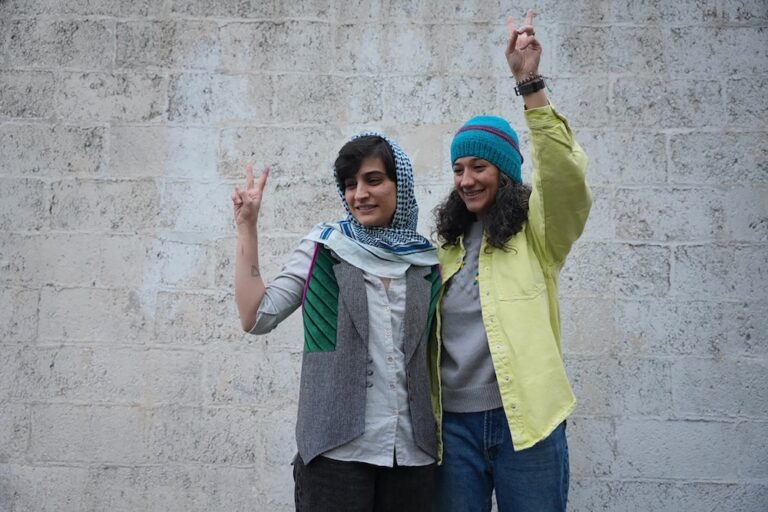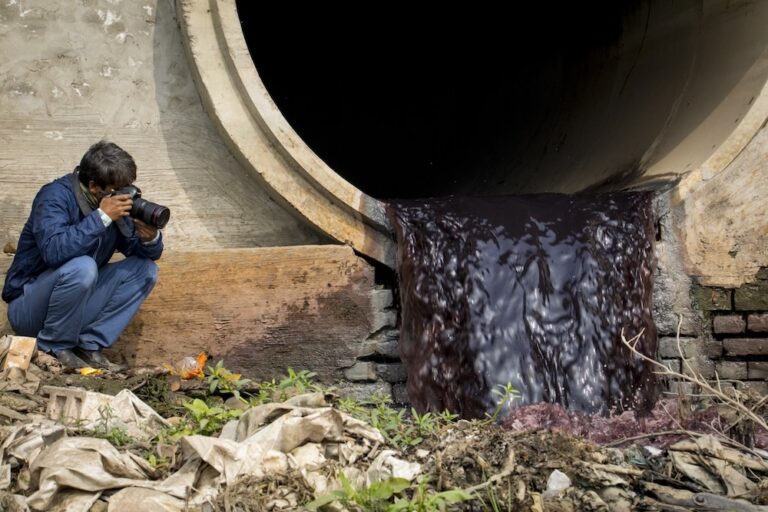(Freedom House/IFEX) – The following is a Freedom House press release: GLOBAL FREEDOM GAINS AMID TERROR, UNCERTAINTY Surprising Level of Freedom in Poor Countries Found NEW YORK, December 18, 2003 — In the midst of global terrorism and international efforts to fight it, freedom and democracy continued to make overall progress worldwide in 2003, according […]
(Freedom House/IFEX) – The following is a Freedom House press release:
GLOBAL FREEDOM GAINS AMID TERROR, UNCERTAINTY
Surprising Level of Freedom in Poor Countries Found
NEW YORK, December 18, 2003 — In the midst of global terrorism and international efforts to fight it, freedom and democracy continued to make overall progress worldwide in 2003, according to a major annual survey released today by Freedom House.
The global survey, Freedom in the World, shows that 25 countries demonstrated forward progress in freedom, while 13 registered setbacks. The ratings reflect global events from January 1, 2003 through November 30, 2003.
This year’s survey also revealed that freedom and liberty are not restricted to the world’s wealthy countries. Many poor and developing nations boast strong records of respect for political rights and civil liberties.
Complete survey results, including a package of charts and graphs, are available online at: http://www.freedomhouse.org/research/survey2004.htm
Real gains outnumbered setbacks by nearly a two-to-one margin, continuing a trend from last year. In the two years since the beginning of the global war on terrorism, freedom and democracy have made demonstrable gains, with 51 countries showing overall progress versus 27 that have registered setbacks. Most gains, however, have been made in regions from which global terrorism does not normally emanate, such as Central and Eastern Europe and East Asia. Freedom is still lagging in the Middle East, North Africa, and Central Asia.
“The war on terrorism has led to repression in certain countries and regions, such as in Central Asia, where counter-terrorism is sometimes used to justify the stifling of dissent,” said Freedom House Executive Director Jennifer Windsor. “But on balance, the world is continuing to move toward greater freedom and democracy.”
The largest freedom gap exists in countries with a majority Muslim population, especially in the Arab world. But the survey finds no inexorable link between Islam and political repression. Indeed, it shows that half of the world’s 1.5 billion Muslims live under democratically elected governments in countries like Bangladesh, India, Indonesia, Nigeria, and Turkey, Yemen (see http://www.freedomhouse.org/research/muslimpop2004.pdf), Osama Bin Laden’s ancestral home and a known refuge for al Qaeda, demonstrated notable progress in 2003, moving from Not Free to Partly Free because of increased civic participation in the country’s political process.
According to the survey, 88 countries are Free, representing 2.8 billion people (44 percent of the world’s population). Their inhabitants enjoy a broad range of rights. Fifty-five countries are considered Partly Free, representing 1.3 billion people (21 percent). Political rights and civil liberties are more limited in these countries, in which corruption, dominant ruling parties, or, in some cases, ethnic or religious strife are often the norm. The survey finds that 49 countries are Not Free, representing 2.2 billion people (35 percent). Inhabitants of these countries are denied most basic political rights and civil liberties.
Of the 25 countries that showed improvements in freedom, Argentina moved from Partly Free to Free, and Burundi and Yemen moved from Not Free to Partly Free. Political rights and civil liberties increased in 22 other countries, although not enough to warrant a category change.
Of the 13 countries that registered setbacks, 5 changed categories; Bolivia and Papua New Guinea moved from Free to Partly Free, and Azerbaijan, Central African Republic, and Mauritania moved from Partly Free to Not Free.
FREEDOM, WEALTH, AND POVERTY
The survey data also reveal important findings regarding freedom and national wealth (http://www.freedomhouse.org/research/gni2004.pdf). Significantly, 38 Free countries have a per capita gross national income (GNI) of $3500 or less, among them 15 states with a per capita income of less than $1500. The study also found no appreciable differences in the level of freedom registered by middle-income countries ($2960 median per capita GNI) and high-income countries ($19,570 median per capita GNI).
“It is common wisdom that poor countries cannot support democratic systems,” Ms. Windsor said. “But our data show that in dozens of poor countries, democracy does not depend on development. In fact, our findings suggest that freedom can be the engine of development.”
FREEDOM’S TENURE
An analysis of the survey’s past 31 years of data reveals that freedom is relatively new to many countries. Of the world’s 192 states, only 24 (12.5 percent) have been Free for the lifetime of the survey. Twenty more countries have enjoyed freedom for 15 to 30 years, while 44, or half of the current total of Free countries, have been Free for fewer than 15 years.
But the report also finds that once countries attain freedom, rarely do they regress, reinforcing the idea that democracy and its attendant institutions are the best insurance against tyranny.
AMONG THE STUDY’S OTHER FINDINGS:
– Durable, long-standing democracies have preserved a broad array of freedoms since September 11, 2001.
– Of the world’s 192 states, 117 are electoral democracies. While these states are not all rated Free, all provide considerable political space and media access for opposition movements, and allow for elections that meet minimum international standards of ballot secrecy and vote tabulation.
– Of the 109 countries rated Not Free throughout the history of the survey, only 13 are still Not Free: Burma, Chad, China, Congo (Kinshasa), Cuba, Equatorial Guinea, Iraq, Libya, North Korea, Rwanda, Saudi Arabia, Somalia, and Vietnam.
REGIONAL FINDINGS
Democracy and freedom remain deeply rooted in Western Europe, with 24 states rated Free. One (Turkey) is rated Partly Free.
In the Americas, 23 countries are Free, 10 are Partly Free, and 2 (Haiti and Cuba) are Not Free
In the Asia-Pacific region, 17 countries are Free, 11 are Partly Free, and 11 are Not Free.
In Central and Eastern Europe and the former Soviet Union, 12 countries are Free, 8 are Partly Free, and 7 are Not Free. Dramatic progress has been confined mostly to Central and Eastern Europe, where the 12 Free countries reside. In the non-Baltic states that emerged from the breakup of the Soviet Union, there are no Free countries, and Not Free post-Soviet states outnumber Partly Free states 7 to 5.
In the Middle East and North Africa, there has been the least progress over the last 31 years. One country — Israel — is Free, 5 countries are Partly Free and 12 are Not Free.
In sub-Saharan Africa, 11 countries are Free, 20 are Partly Free, and 17 are Not Free.
WORST OF THE WORST
Of the 49 countries rated Not Free, 8 — the fewest in the survey’s history — were given the lowest possible numerical ratings for political rights and civil liberties: Burma, Cuba, Libya, North Korea, Saudi Arabia, Sudan, Syria, and Turkmenistan. Two territories, Chechnya (Russia) and Tibet (China), also received the worst ratings.


